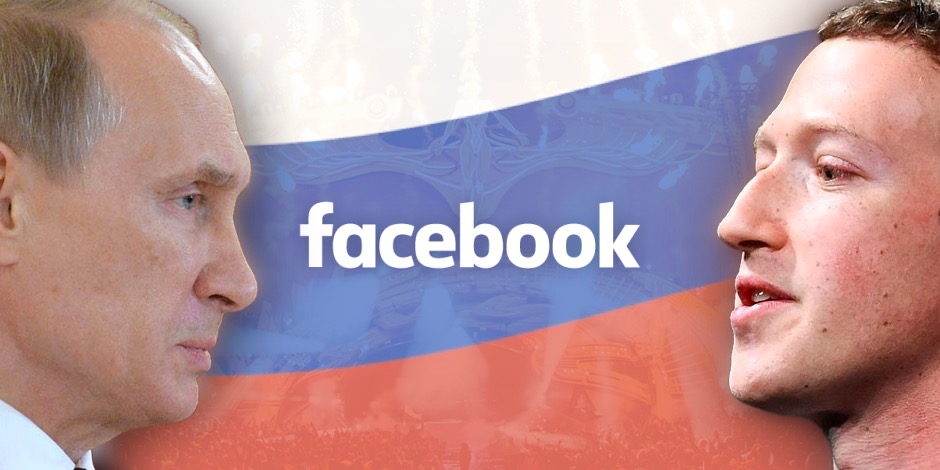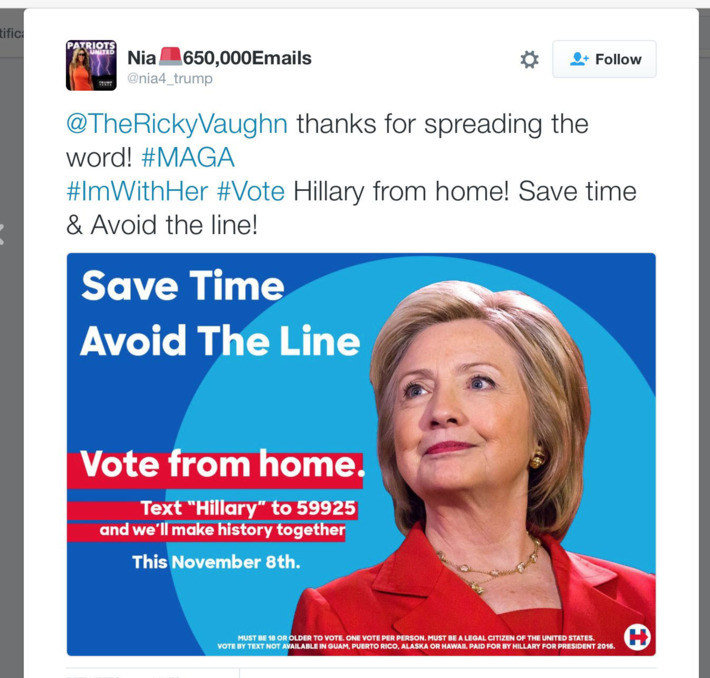The tech industry believes it is good to ‘disrupt’ the world — it is even the name of the conferences held by TechCrunch — because causing massive global unrest and social anxiety is supposedly commendable. But it is much easier to destroy something than build something.
As a result, that world has never understood the lesson of Jurassic Park. They have been so preoccupied with whether they could that they did not think if they should. The young geeks obsess over new technologies but are too naive to think about the large-scale, societal implications. The middle-aged venture capitalists want to be Scrooge McDuck and dive into the new piles of money that they are adding to their existing piles of money.
To them, it’s all a game. Meanwhile, the world is burning. The Russian government has reportedly been manufacturing internal strife and fragmentation to destabilize other countries in pursuit of its geopolitical objectives. Brexit and Donald Trump as well as Spain and Catalonia have been the most successful examples. Social media — mainly through Facebook — has been the method.
Facebook has conceded that at least 470 fake accounts used by the pro-Russian troll factory Internet Research Agency promoted material designed to interfere with last year’s US presidential election. The social network stated that up to 126m Americans could have been exposed to the propaganda. (That is 50% of the 2016 voting-age population of the country.)
In just one example, Russia, according the chairman of the US Senate Intelligence Committee, invented an urgent cause around the ‘Islamization of Texas’ and used fake Facebook pages to encourage people from ‘both sides to battle in the streets and create division between real Americans.’ Here is more: reported Russian Facebook ads showed, among others, Jesus battling a Hillary Clinton who looks like a devil.
To put it simply: Brad Parscale, the digital director for Trump’s presidential campaign, has said Facebook was the social platform that was most responsible for his surprise election victory.
While Facebook general counsel Colin Stretch testified at recent US Congressional hearings alongside representatives of Google and Twitter on Russian election interference, Mark Zuckerberg and the company’s investors were probably lighting cigars with $100 bills back at their offices. The social network announced a 47% increase in quarterly revenue to $10.1bn at around the same time as the hearings.
Facebook’s earnings announcement shows that the company can be successful despite — or perhaps with the help of money from — the alleged Russian manipulation and interference in western politics.
Facebook started with Zuckerberg’s famous motto: ‘Move fast and break things.’ But anyone who encourages people to destroy things with such reckless disregard is an immature brat at best or a dangerous psychopath at worst.
Well, Mark, congratulations. You did break something: democracy. I am sure that you did not mean to empower Russia’s reported Soviet-style active measures and dezinformatsiya campaigns to help to make Donald Trump the president of the United States. But your platform did exactly that.
Russia pulled down the pants of the social media and tech industries — to the detriment of the entire western world. I wonder how startups and VCs feel when they get a taste of their own medicine by someone else who moved fast and broke things. Maybe Mark Zuckerberg and Vladimir Putin should co-present at the next TechCrunch Disrupt.
Even more, the very assumptions that underpin how high-tech startups should operate are what have led us to this point.
When I was once a reporter for a weekly newspaper in Boston, the entire editorial and advertising staff would spend Thursday afternoons going through the articles and ads in the following day’s paper. We would check for typos, whether ads were inappropriately placed next to related stories, and whether the ads themselves contained anything improper. The advertising team knew exactly who had bought every single advertisement.
But the rule of thumb in the high-tech world is to automate as much as possible because human beings are expensive. Human quality control is always important, but it is viewed as an unnecessary cost center for startups that want to grow quickly. (Unless you are a big brand with a lot of money to spend, it is virtually impossible for an advertiser to contact a human being at Facebook.)
Instead, companies such as Facebook that are dominated by software engineers have always put blind faith in data and algorithms even though data can always be hacked and algorithms can always be manipulated. Now, we see where that road lies. As a character in a recent episode of the US satirical cartoon South Park stated, Zuckerberg created a platform that provides a monetary incentive for people — or governments — to spread misinformation.
The Facebook founder seems to have been so obsessed with creating a global, self-service direct marketing platform that he never thought about how social media would influence global politics as well as human relationships and society as a whole. Is it any wonder that Facebook’s early employees are now ashamed of what they built and fear a social media dystopia while current employees are embarrassed to say where they work?
A perhaps apologetic Sean Parker, Facebook’s first president, said at an Axios event last week that the company’s product developers ask themselves this question: ‘How do we consume as much of your time and conscious attention as possible?’
‘It’s a social-validation feedback loop … exactly the kind of thing that a hacker like myself would come up with, because you’re exploiting a vulnerability in human psychology,’ he added. ‘God only knows what it’s doing to our children’s brains.’
US Sen. Al Franken summarized the issue perfectly in a recent speech at the Open Markets Institute: ‘How did big tech come to control so many aspects of our lives?’ (The Washington, DC, think tank aims to fight monopolistic power and is led by journalist Barry Lynn, who was asked to leave the Google-funded New America think tank after praising a European antitrust ruling against the company.)
So, where do we stand today? Facebook has been like a new, reckless teenage driver who trades seats with a friend when the police pull him over. The platform wants all of the privileges but none of the associated responsibilities. Facebook fought for years against the application of US political advertising disclosure rules that currently apply to traditional media and would have exposed the fake Russian ads. The company deleted Russian data before researchers could analyze it further.
In response, Facebook should first be held to the same political advertising standards as traditional media in the US — as well as in every other country that has similar regulations. If the company were to adopt the rules voluntarily, it would be the beginning of a mea culpa and a PR move in good faith. Facebook has indeed announced that it will require full transparency, but it will be the follow-through and not the statement that matters. We will see. For its part, Google says it ‘strongly supports’ full disclosure in political ads.
In the meantime, Facebook — as well as Amazon, Google, and Taboola — can start to repair the damage by cutting off the far-right and fake news Breitbart News publication.
Second, Facebook should drop the absurd pretense that COO Sheryl Sandberg has been dutifully peddling: that the platform is not a media company. As Jeff John Roberts succinctly points out in Fortune, Facebook has a business interest in not being deemed as a media company and not dealing with the regulatory and editorial responsibilities that would follow.
But here is a brief list of reasons why Facebook is a media company:
- Facebook distributes news to billions of people (45% of US adults use Facebook for news, and half of those people get their news from that platform alone, according to the Pew Research Center)
- Facebook runs advertising alongside that news
- Facebook pays companies to produce and distribute programming on its platform
- Facebook will be producing its own original programming
- Facebook has rules and policies that determine what it will and will not transmit
- Facebook employs fact-checkers
The operational differences are important to understand. News outlets want shared articles first to be accurate; whether they receive a lot of engagement comes second. Facebook wants shared articles first to receive engagement; whether they are accurate comes second. Facebook wants to keep prioritizing the latter, but the platform’s level of influence should mandate that it do the former.
New York University marketing professor Scott Galloway goes into more detail in a podcast here. Elsewhere, he discusses how this whole debacle could mean the end for the social media platform. If Facebook were to agree to be classified as a media company and sacrifice a little of the company’s immense revenues for the benefit of the world, it would also help to improve the platform’s viability. After all, social media is essentially a public good when everyone including the president of the United States uses it to communicate.
In an October 2017 experiment, WordStream founder and MobileMonkey CEO Larry Kim found that an hour of work and a $50 spend on Facebook can still create a massive fake news operation. The inherent sketchiness of the platform is one of reasons why I told CASBAA’s annual convention in Macau last week that TV is not dead and is still the best medium for brand advertising.
Facebook could certainly employ an army of human beings at good salaries to review and stop such activity as I did at the weekly newspaper years ago, but that would put a dent — no matter how small — in the company’s profit growth. And the rule for startups always seems to be ‘growth at any cost.’ Moving fast and breaking things needs to be done as cheaply as possible.
Zuckerberg himself has been on a ten-month charm offensive throughout the United States, but it has not helped his public likability for one simple reason: the problem is not the marketing, the problem is the Frankenstein product. No amount of disruption can help that anymore.
Note: After publishing this column, I was sent more alleged evidence of Russian election manipulation. I cannot confirm this, but there was also reported Russian social media posts aimed at reducing Democratic turnout by encouraging people in swing states to “vote online” even though that voting method did not exist:
Keynote marketing speaker Samuel Scott is a former journalist, newspaper editor, and director of marketing and communications in the high-tech industry. Follow him on Twitter and Facebook. Scott is based out of Tel Aviv, Israel.

